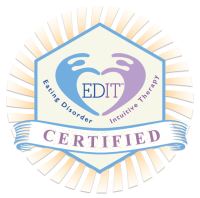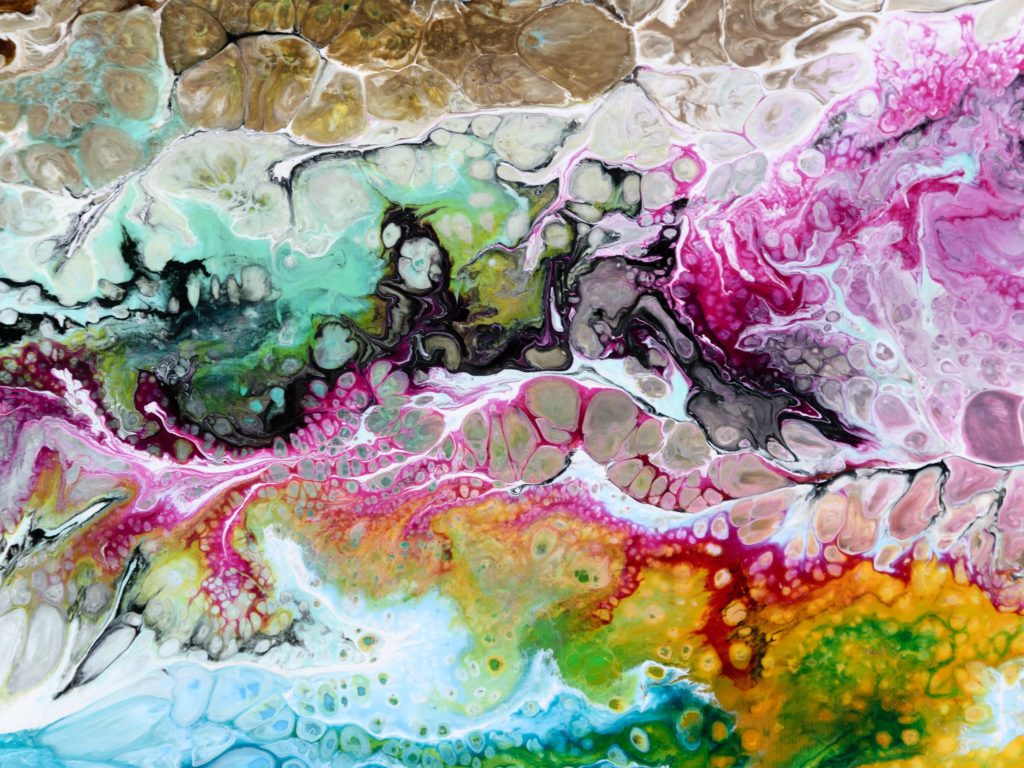Art Therapy in Eating Disorder Recovery
I’d like to introduce you to Abby Hansen, who is an EDIT™ Certified III – Eating Disorder Treatment Clinician. Abby was a Counselor Intern under my supervision at Positive Pathways from August, 2016 through May, 2017. She is a knowledgeable and compassionate therapist, who is currently employed an an eating disorder treatment center. Although she does not meet with anyone who is not a patient at the treatment center, I can incorporate art making into therapy sessions. You never know what the creative process will reveal!
– Dr. Dorie
What are some core issues in eating disorders? Are there themes that almost always show up in eating disorder recovery? Why is art therapy so effective to explore these core issues in eating disorders?
My name is Abby Hansen and I am an EDIT™ Counselor Intern at Positive Pathways. I am currently finishing up my Masters Degree in Clinical Mental Health Counseling with a concentration in Transpersonal Art Therapy from Naropa University in Boulder, CO.
I have been working with folks struggling with eating disorders at various levels of care for the past six years. Over time I have picked up on a few themes or core issues in eating disorders treatment that almost always show up. I’d like to share why I believe art therapy can be such a beautiful part of eating disorder recovery, where healing of these core issues in eating disorders can unfold.
1. Identity – “I am sick, and if I am not sick, who am I?”
The eating disorder often began as a very useful coping mechanism utilized to help during a difficult situation in life. Over time, the eating disorder becomes less effective as a way to cope, and winds up holding one back from who they really are. Art is innately unconscious – every mark we make on a page is the visual language of our soul. When we take the time to slow down and pay attention to our imagery we realize we have never left ourselves. I believe the more time we spend with our artwork the more time we spend with ourselves.
2. Perfectionism – “If I can’t do this perfectly, I am a failure.”
This sounds familiar, right? All-or-nothing thinking is such a common way of maneuvering in this world, in many ways it can keep us motivated in life but in other ways it can set us up to feel like we can’t do anything right. This is especially true for someone struggling with an eating disorder. Art can help with this, too! Clients can challenge their perfectionism using art materials. Maybe you gravitate toward colored pencils or markers because they are not messy, easy to control, and predictable in terms of mark-making. Practicing with less controllable materials such as water colors, clay or paint is a great way to challenge the eating disorder thoughts around being perfect. Give yourself permission to mess up, or get your hands dirty. It is a simple way to practice incorporating flexibility in your life.
3. Secrets – “I can hardly trust myself, how can I be expected to trust others?”
The eating disorder behaviors usually live in a very private world – therapists are sensitive to this, and know that developing trust in relationships is not the easiest thing for someone who is struggling. And yet, the client is almost always craving connection and companionship. Any relationship needs vulnerability to work. Art can be that middle ground or that safe place between the therapist and client. When sharing verbally feels too hard, art can provide that container for expression. The secrets can live in the art instead of the body and the client can communicate how they feel using metaphor. This can feel like a less risky way of being vulnerable.
These are just a few core issues in eating disorders recovery, and certainly there are more. Art therapy allows for a lot of flexibility with treatment planning to explore these and other core issues – plus, it can be fun! I want to emphasize that there is no need to “be an artist,” or even to have any experience using art materials in order to do art therapy. Just bring your “beginners mind,” and we’ll explore art therapy together!
*****
Looking for guidance with ART THERAPY? ABBY HANSEN, MA (the author of this blog article) is an EDIT™ Certified III – Eating Disorder Treatment Clinician, and is currently employed by an eating disorder treatment center. Although she does not work with clients unless they are patients at the center, Dr. Dorie is available to meet with clients who wish to incorporate art making into their therapy sessions.
Interested in a FREE consultation with Dr. Dorie? Dr. Dorie is passionate about her method of Eating Disorder Intuitive Therapy (EDIT)™ to help people overcome eating disorders and addictions. She provides customized counseling for eating disorders and alcohol / drug addiction at her Positive Pathways treatment center in Evergreen, Colorado – and EDIT™ eating disorder training and certification for coaches and clinicians worldwide. CALL 303-494-1975 – EMAIL DR. DORIE – GET CERTIFIED

